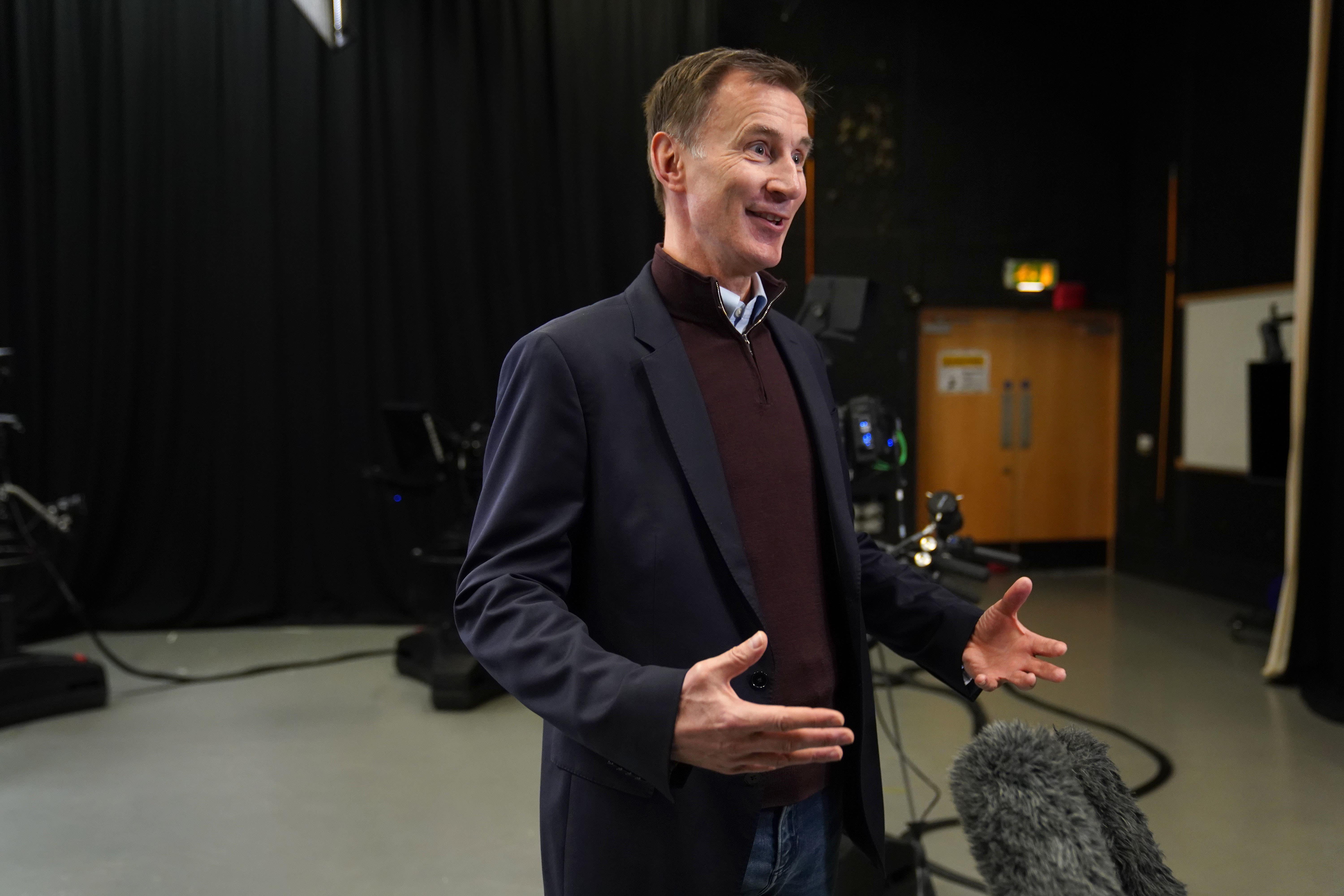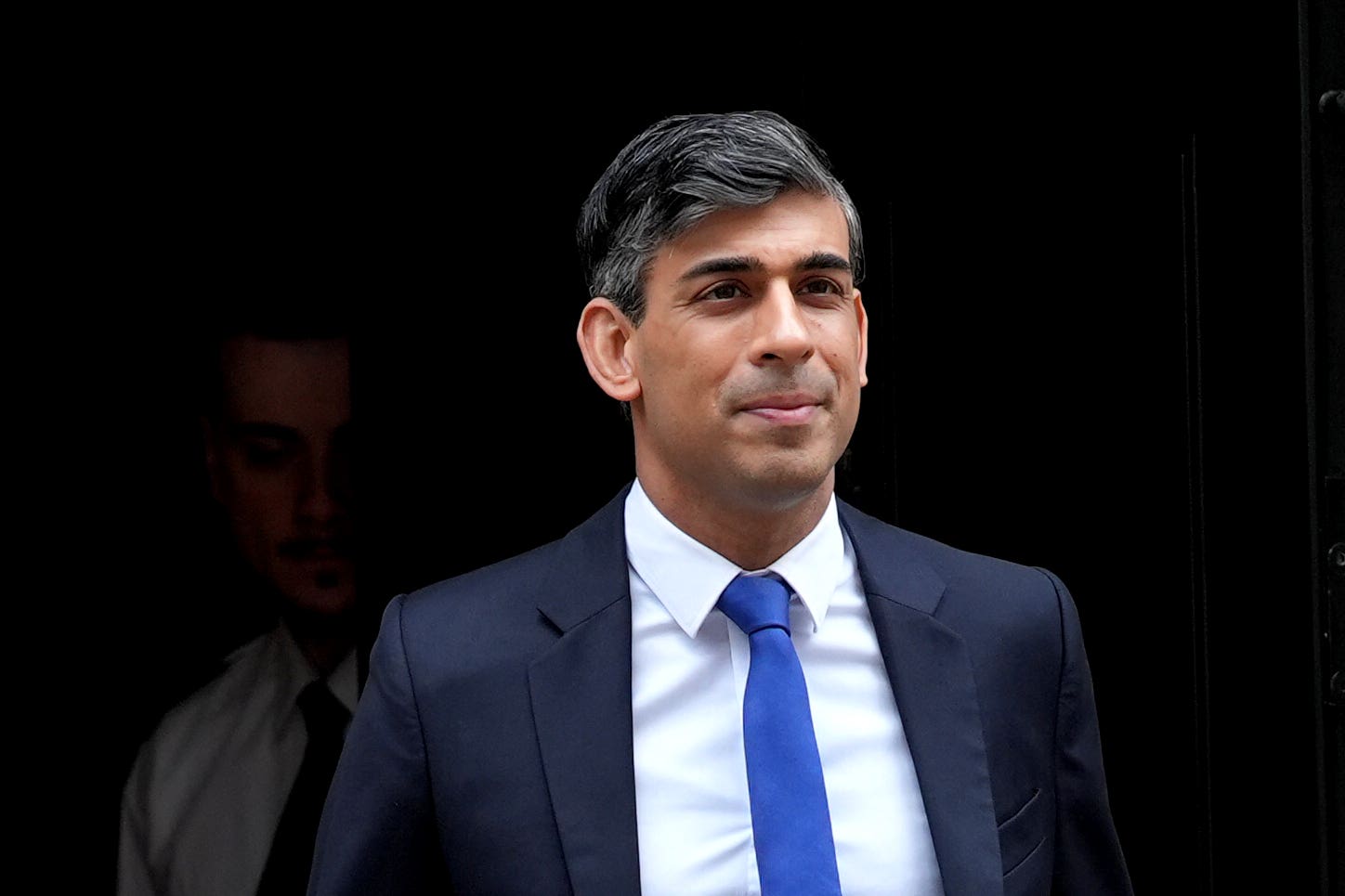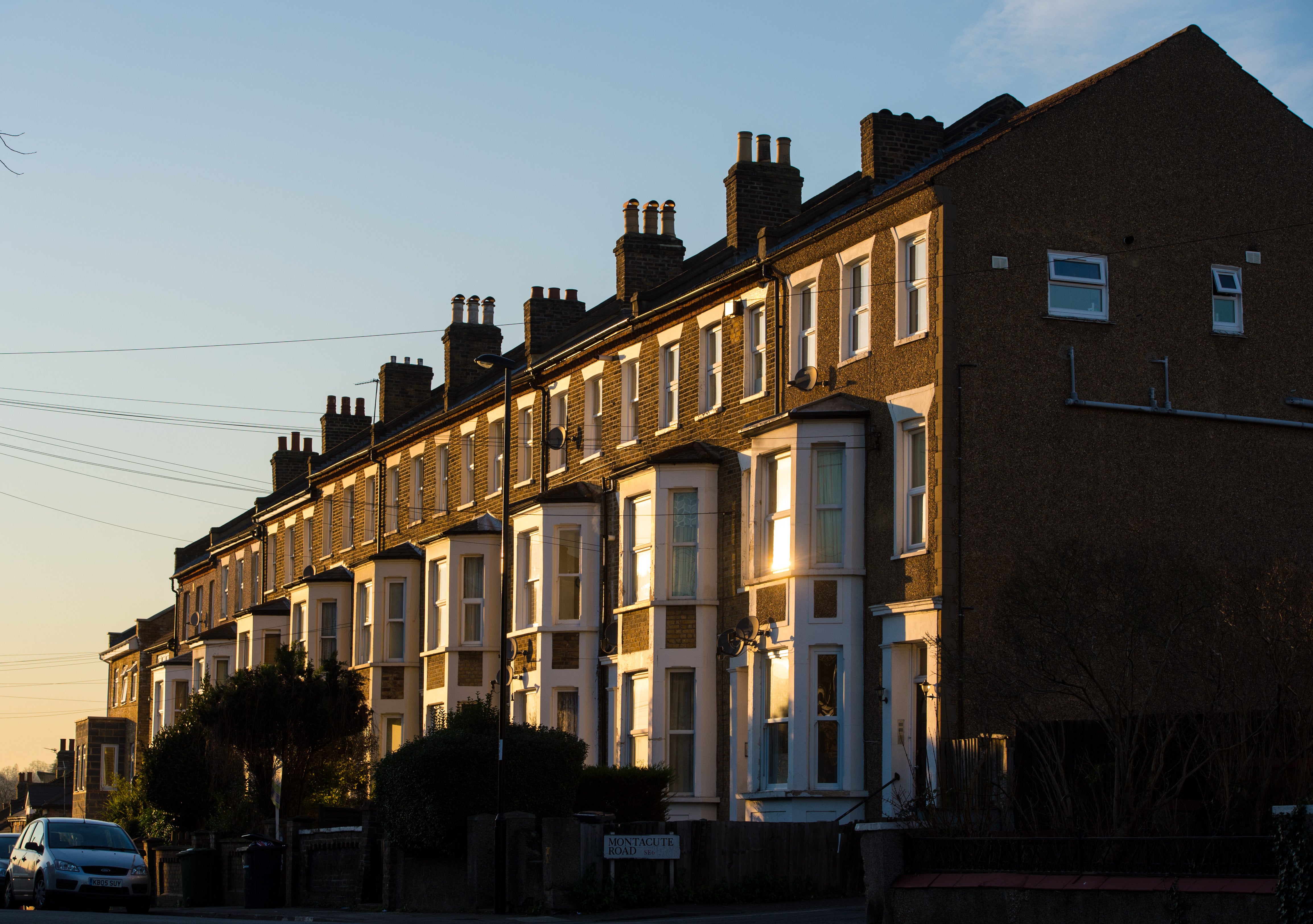Interest rates - latest: Bank of England criticised for ‘overly cautious’ rates decision
Policymakers have kept rates on hold at 5.25 per cent
Your support helps us to tell the story
From reproductive rights to climate change to Big Tech, The Independent is on the ground when the story is developing. Whether it's investigating the financials of Elon Musk's pro-Trump PAC or producing our latest documentary, 'The A Word', which shines a light on the American women fighting for reproductive rights, we know how important it is to parse out the facts from the messaging.
At such a critical moment in US history, we need reporters on the ground. Your donation allows us to keep sending journalists to speak to both sides of the story.
The Independent is trusted by Americans across the entire political spectrum. And unlike many other quality news outlets, we choose not to lock Americans out of our reporting and analysis with paywalls. We believe quality journalism should be available to everyone, paid for by those who can afford it.
Your support makes all the difference.The Bank of England has been criticised as ‘overly cautious’ after it maintained interest rates at the same level, despite a fall in inflation.
Figures on Wednesday revealed that inflation fell to 3.4 per cent in February – down from 4 per cent in January and the lowest since September 2021, when it was 3.1 per cent.
The positive news on Wednesday came ahead of the BoE’s latest interest rate decision at noon on Thursday, with policymakers keeping rates on hold at 5.25 per cent.
Following the decision, BoE governor Andrew Bailey said: “In recent weeks we’ve seen further encouraging signs that inflation is coming down.
“We’ve held rates again today at 5.25% because we need to be sure that inflation will fall back to our 2% target and stay there.
“We’re not yet at the point where we can cut interest rates, but things are moving in the right direction.”
However, the decision prompted criticism from the The Institute of Chartered Accountants in England and Wales (ICAEW) who said the BoE remained ‘overly cautious’ on rate cuts given the inflation slowdown.
Welcome
Hello and welcome to the Independent’s live coverage of the Bank of England’s latest decision on what they should do with interest rates, which are currently at 5.25 per cent.
Speculation is rife in financial markets that policymakers will hold steady and choose to keep interest rates at the same level.
Read our preview of the decision here:

Bank of England set to hold interest rates despite expected fall in inflation
Financial markets are predicting that the base rate will remain unchanged at 5.25 per cent for the fifth consecutive time
Lowest inflation since 2021 brings hope of summer interest rate cut
The Bank of England’s decision on what it should do with interest rates comes after better-than-expected inflation figures.
The figures released by the Office for National Statistics (ONS) on Wednesday morning showed that inflation was 3.4 per cent in February, which is slightly lower than the 3.5 per cent predicted by economists.
This is the lowest level inflation has been at since September 2021. The latest figures are moving gradually closer to the BoE’s 2 per cent inflation target.
Read our report here:

Lowest inflation since 2021 brings hope of summer interest rate cut
The fall in inflation has increased the chances the Bank of England will look to cut interest rates in the summer
Inflation eased more than expected in February
Inflation eased back by more than expected in February, boosting hopes that a cut in interest rates could be on the cards within months.
Official figures showed Consumer Prices Index (CPI) inflation fell to 3.4% in February, down from 4% in January and the lowest level since September 2021, thanks to the cost of food and eating out rising more slowly.
Chancellor Jeremy Hunt hinted that the “decisive” drop in inflation could give him room to further reduce national insurance, but played down suggestions that this would mean pre-election tax cuts in an autumn statement.
Experts said inflation is now likely to fall back below the Bank of England’s 2% target in April or May, thanks to the scheduled 12% fall in the energy price cap on April 1.
This could pave the way for the Bank to start cutting rates possibly as early as June, according to many economists.
Chancellor says inflation figures could open door for interest rates drop
Mr Hunt said: “Inflation has not just fallen decisively but is forecast to hit the 2% target within months.
“This sets the scene for better economic conditions which could allow further progress on our ambition to boost growth and make work pay by bringing down national insurance as we work towards abolishing the double tax on work.”
He told broadcasters: “As inflation gets closer to its target, that opens the door for the Bank of England to consider bringing down interest rates, that brings down mortgage rates, that makes a very big difference.
“It’s far too early to know whether we’ll have another fiscal event before the election, but what I would say is that what you can see is the difficult decisions the Government has taken over the last year are paying off.”

Sunak says 2024 will be ‘year economy bounces back’ as he battles to keep job
A defiant Rishi Sunak insisted he would still be Prime Minister after May’s local elections as he dismissed “Westminster gossip” about Tory plots against his leadership.
Mr Sunak addressed Conservative MPs in Parliament as he battled to assert his authority and rally his party behind him following days of speculation about his position.
And in a BBC interview he insisted his plan for the country was working and “2024 will prove to be the year that the economy bounces back”.
Speculation is rife that rebel Conservative MPs are lining up potential successors should Mr Sunak face a no confidence test before a general election.
Heavy defeats for the Tories in May’s local elections could heap pressure on Mr Sunak.
But the Prime Minister said he would still be in No 10 after the local elections because “the things that we are doing are making a difference”.
Asked whether he would be Prime Minister after May, he told the BBC: “Yes. Because the things that we’re doing are making a difference, right.
“And there’ll always be noises off, there’ll always be people focused on what’s happening at Westminster. But that’s not, when I go around the country every week talking to people, that’s not what they talk to me about.
“What they are talking to me about is making sure that inflation continues to come down, that energy bills and mortgage rates are falling, that we are cutting taxes so that their family have more money in their bank accounts every month… That’s what we’re delivering on the economy.”

PM says ‘we have turned the corner’ on economy
Mr Sunak was buoyed by a fall in inflation to 3.4% in February, down from 4% in January, with Chancellor Jeremy Hunt hinting the improved economic picture could result in tax cuts and reductions in interest rates – which could improve voters’ finances in the run-up to an election later this year.
The Prime Minister said: “I do believe that at the start of this year we have turned a corner after the shocks of the past few years and we are in a new economic moment and 2024 will prove to be the year that the economy bounces back.”
He sought to play down concerns about reports of a backbench plot to oust him as Conservative leader in the interview, insisting that his focus was on the country at large.
“Look, these things don’t infuriate me because you know what, fundamentally, I’m just not interested in Westminster gossip,” the Prime Minister said.
“It’s just that is not what’s important. What’s important is the future of our country, and people’s financial security and the peace of mind that they rightly deserve… That’s what I get up every morning to do and that, I will work every hour God gives to deliver for people.”
Surprise inflation drop could mean cheaper mortgages for home owners by the summer
UK inflation has fallen back to 3.4 per cent, the lowest level in more than two and a half years, boosting hopes that the Bank of England could look to cut interest rates in the summer.
The larger-than-forecast decline is a significant boon for Rishi Sunak, who made reducing inflation one of his key economic pledges. Getting inflation down to 2 per cent is also a key target for the Bank.
The figures released by the Office for National Statistics (ONS) on Wednesday morning showed that inflation was 3.4 per cent in February, which is slightly lower than the 3.5 per cent predicted by economists.
This is the lowest level inflation has been at since September 2021. Despite inflation falling it does not mean that prices are falling, only that they are rising at a slower pace.

UK rents skyrocket at fastest rate on record as tenants hit by ‘cost of renting crisis’
UK rental costs have increased at the fastest rate on record as the housing market continues to be impacted by constricted supply and higher interest rates.
The average UK rent increased by 9 per cent in the 12 months to February, up from 8.5 per cent in January, the Office for National Statistics (ONS) said.
It is the highest annual percentage change since the UK data series began in January 2015. Private rent inflation was highest in London, at 10.6 per cent, and the lowest in the North East at 5.7 per cent.
The average monthly rent in the UK is now £1,238, which is £102 higher than 12 months ago.
However, average house prices decreased by 0.6 per cent in the 12 months to January 2024. In England, they decreased by 1.5 per cent as they also did in Wales by 0.8 per cent, but increased in Scotland by 4.8 per cent.
Lack of supply causing rent rises
Luke Murphy, associate director for infrastructure and housing at the ippr, told The Independent the UK housing market’s structural problem of a lack of supply is still the primary driver in rent increases.
“It’s a fundamental issue of supply, we have not been building enough homes for decades and that’s all kind of homes. It’s not just about the number, it’s about building many more genuinely affordable social homes.
“Our analysis shows there is a four million homes shortage over a decade and we are nowhere near building the number of affordable homes that we need. And that’s having the impact on rents we are seeing.”
Cara Pacitti, Senior Economist at the Resolution Foundation, said that the average rent in the UK is now a fifth higher than pre-pandemic in February 2020.
“With inflation falling and earnings growth cooling we can expect some better news on the horizon, and indeed market data on rental prices for new tenancies has seen slower growth in recent months. However, even if we begin to see rental price growth cooling, private renting will still remain by far the least affordable, least secure and lowest quality housing tenure.”
The Independent view: Rachel Reeves still has much explaining to do
In all likelihood, Britain is only seven months away from a general election that the Labour Party will almost certainly win. It is now too late for any Conservative leader to salvage the situation, simply because of that time constraint.
Inflation is dropping towards the official 2 per cent annual target; the economy may well be out of its shallow recession by now; more tax cuts are on the way. But the voters are no longer listening. They made their minds up long ago.
The reasons for the Tory defeat will mostly not be found in what happens over the next few months, but what has happened in the last few years – and, indeed, since the first Conservative-dominated administration was formed in 2010. Change feels inevitable.

Join our commenting forum
Join thought-provoking conversations, follow other Independent readers and see their replies
Comments